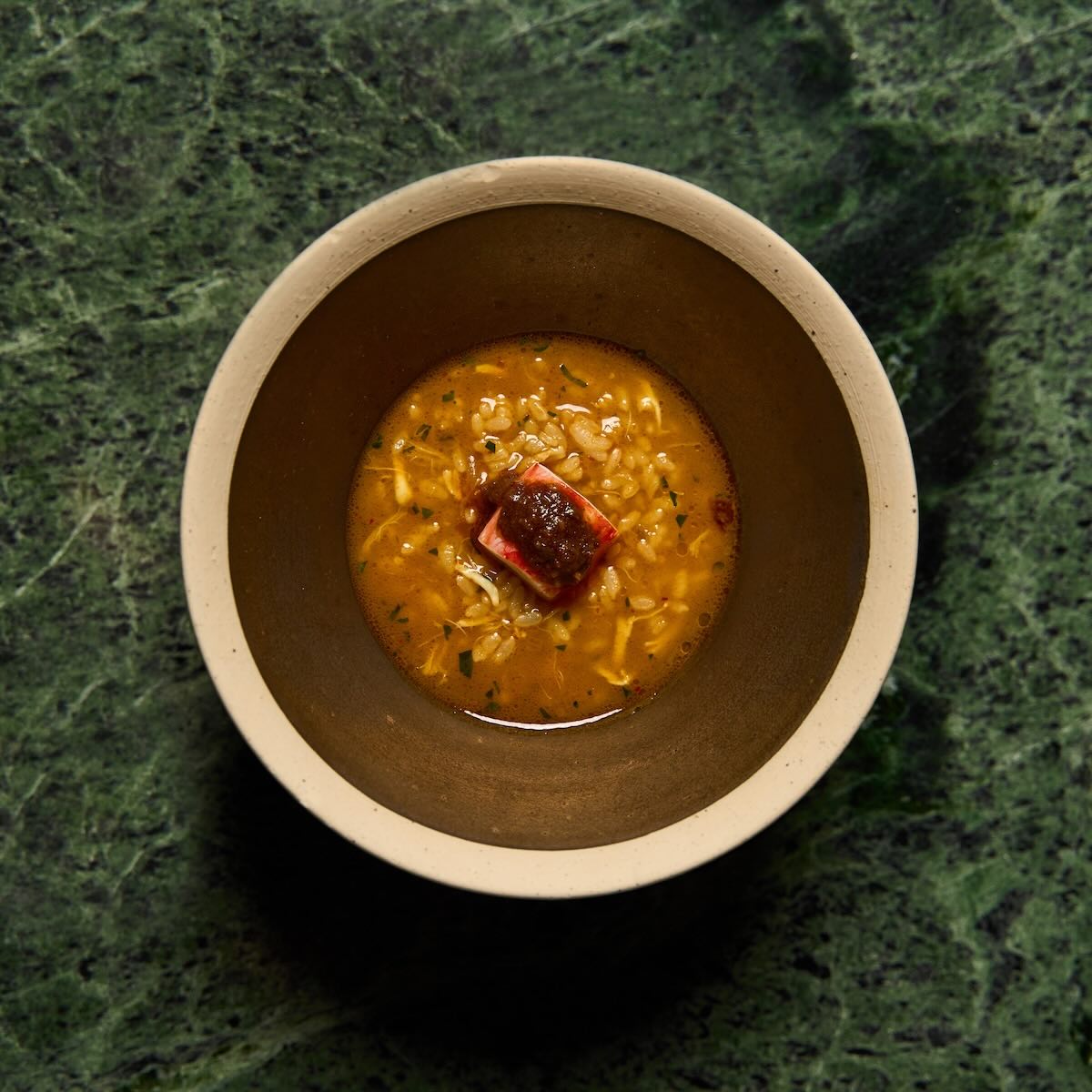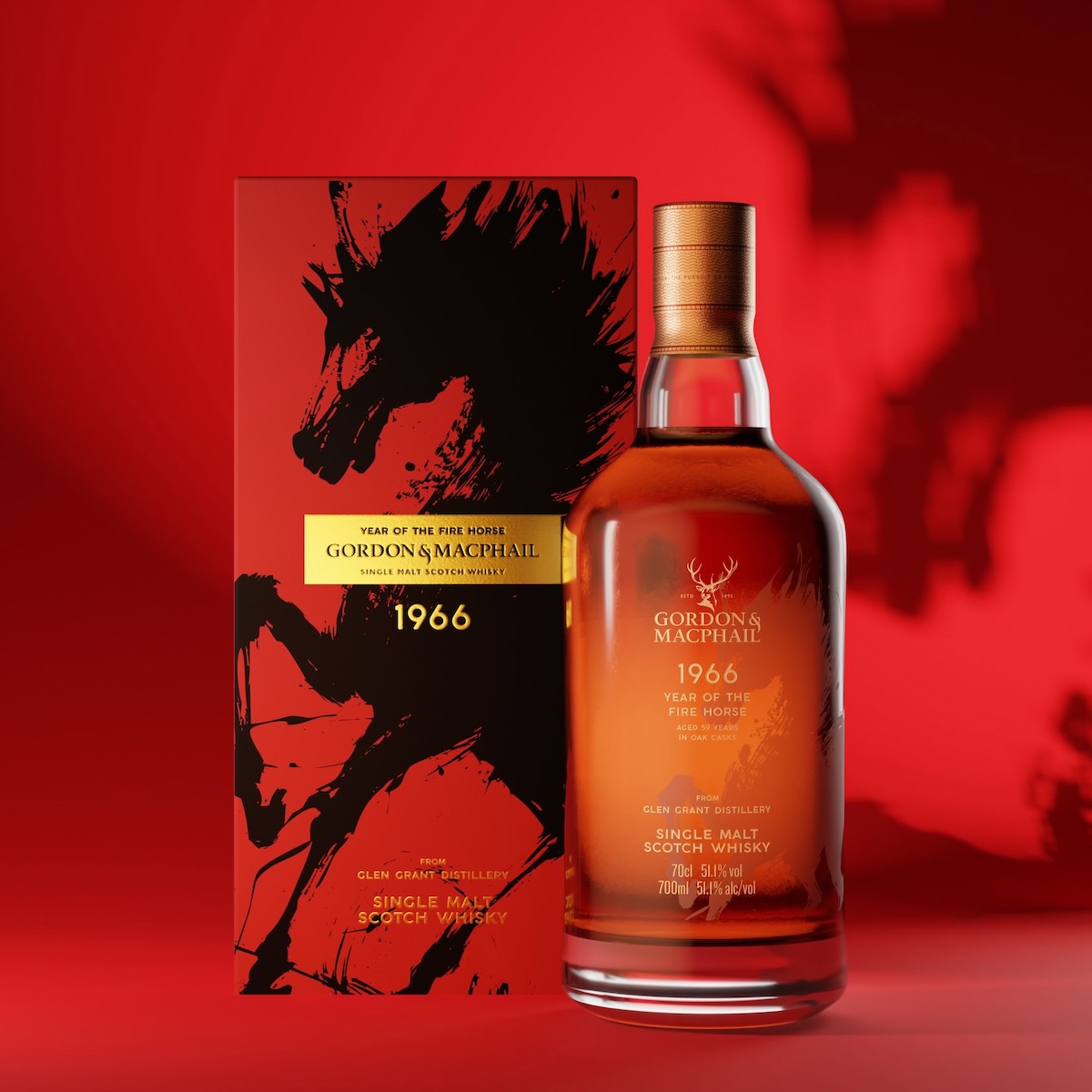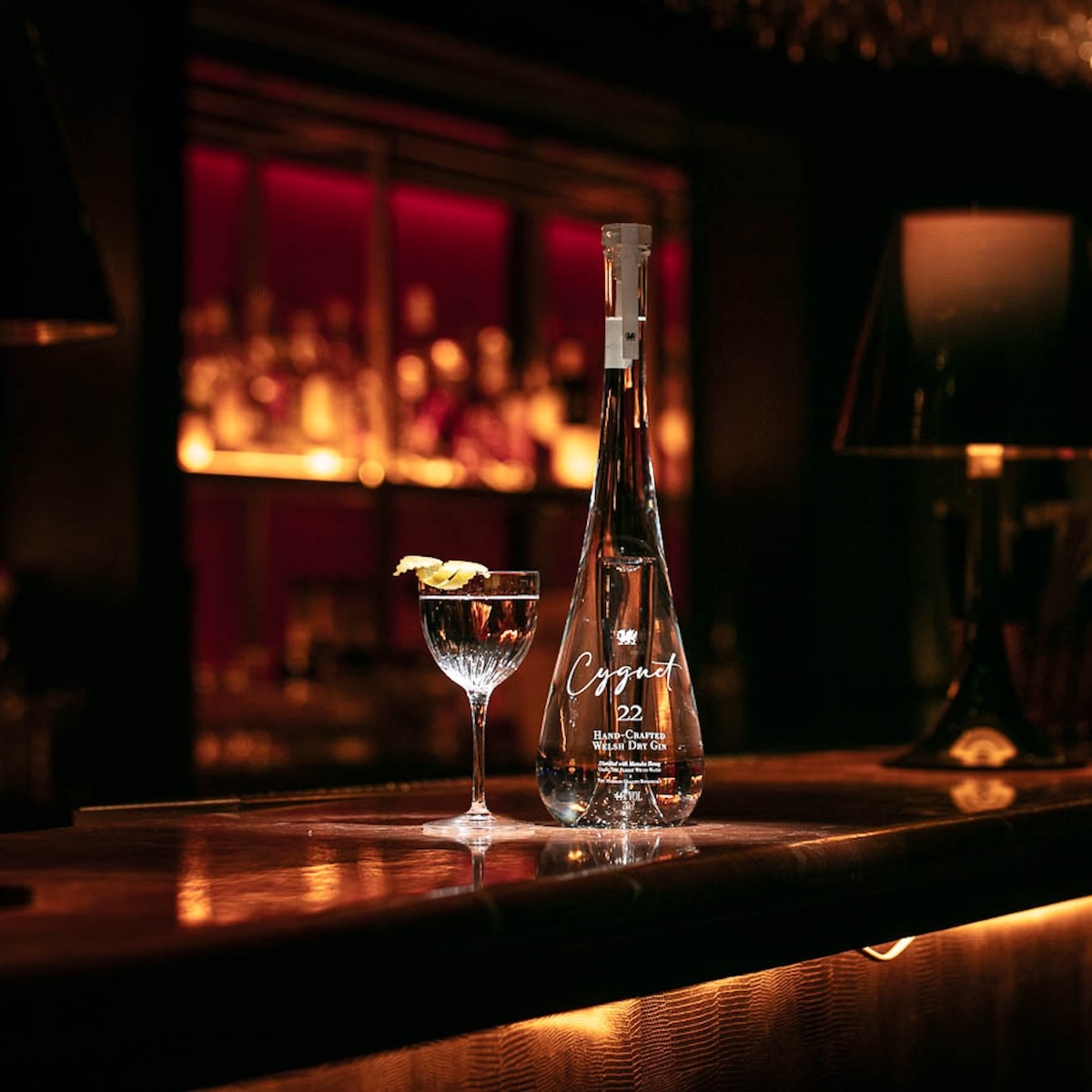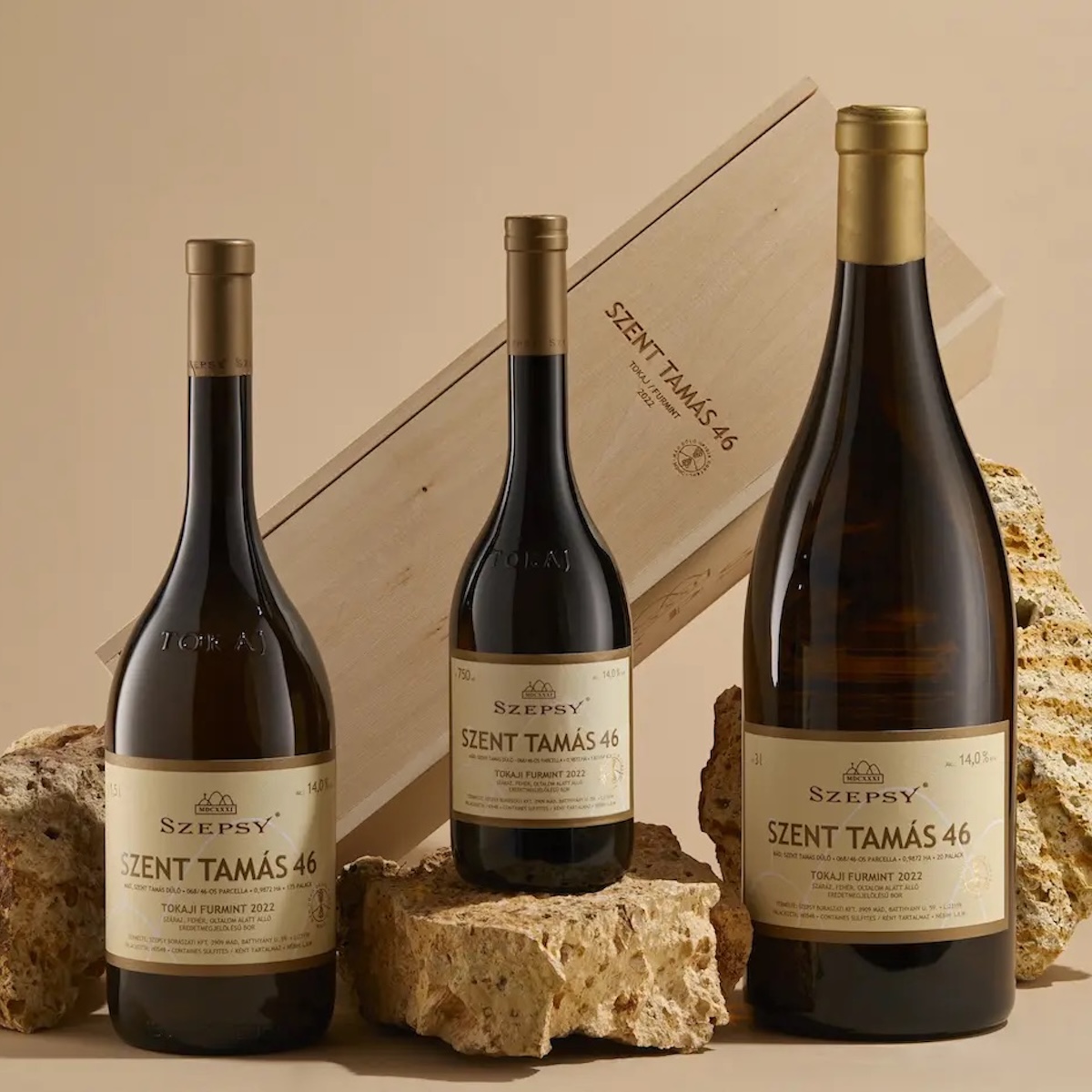A few months ago, a white-glove gala affair attended by connoisseurs and critics saw some of the best wines in the world feted and awarded lofty titles. Among them, the best red, white, Chardonnay, Vidal, and so on were named in a grand total of 23 categories. Upholding international competition standards, adjudicated by a panel of 27 local and international critics, the deliberation was followed by a highly anticipated awards ceremony.
On the night, the highest honour was awarded to the Fei Tswei Marselan Reserve 2021. In fact, all the winners were Chinese, as Wynn Macau and Wynn Palace hosted the first-ever Wynn Signature Chinese Wine Awards in April of this year. As the biggest Chinese wine competition in the world—and what we hope will become an annual affair—the event created seismic ripples in the tipple industry, and many an epicurean from Europe and the Americas were paying attention to the hitherto globally unsung labels, vineyards, and locales.
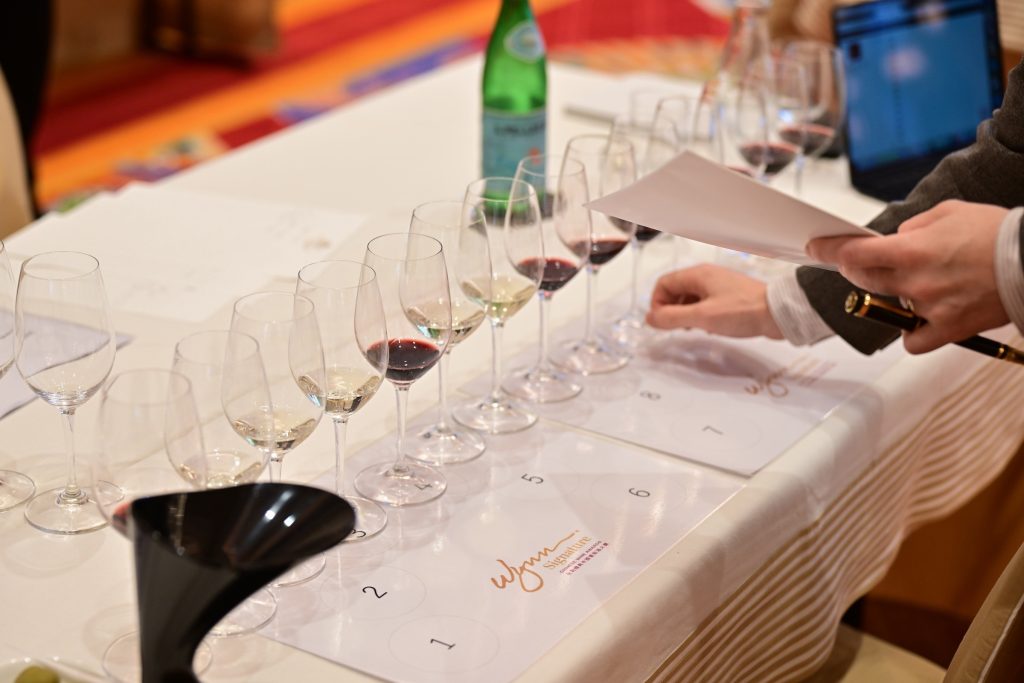
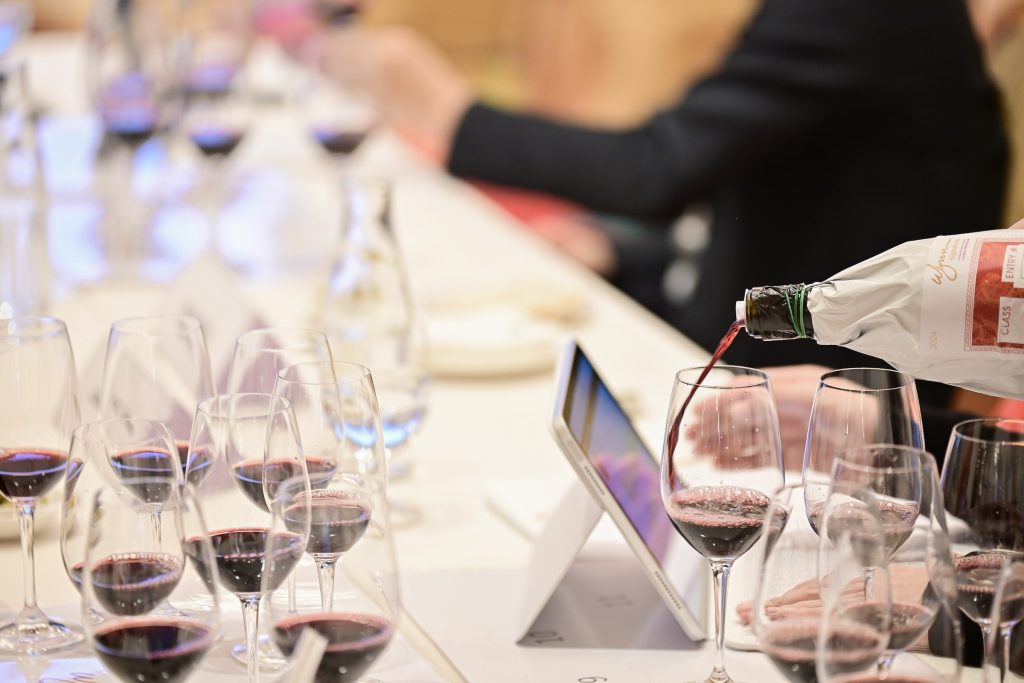
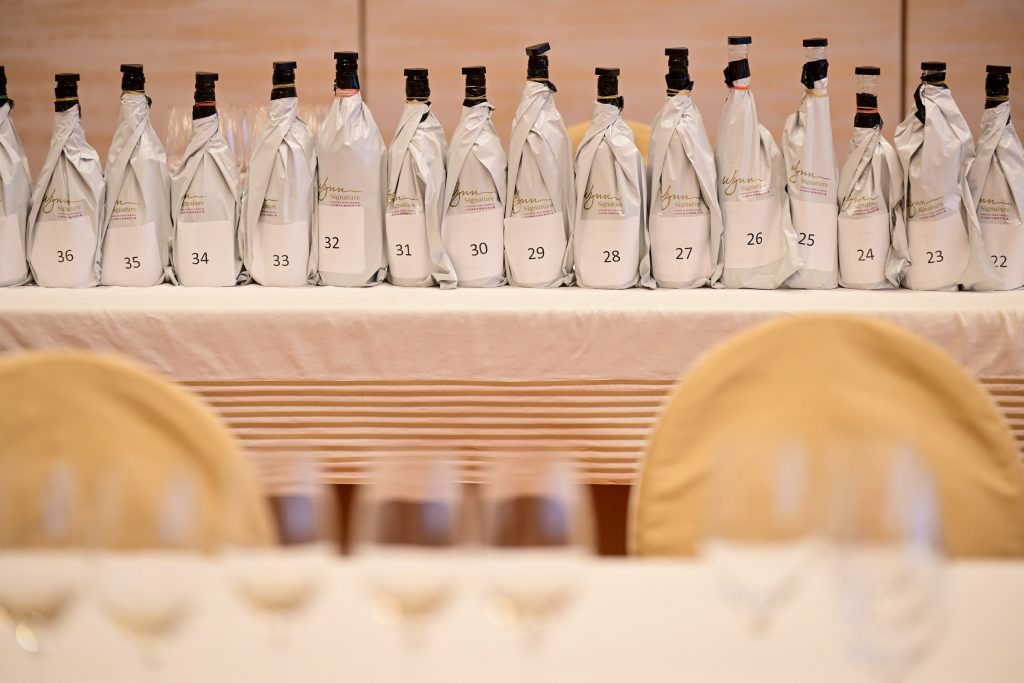
Celebrating Chinese wine excellence, the Fei Tswei Marselan Reserve 2021 took away the Best Wine of China trophy, while also earning the Best Red Wine, Best Marselan, and Best of Ningxia titles. Xige Estate N28 Chardonnay 2021 won two awards, namely Best White Wine and Best Value Wine, while Domaine Franco Chinois Petit Manseng 2018 received the Best Sweet Wine, Best Petit Manseng, and Best of North China accolades.
Adding to the dialogue ignited by earlier reporting by Robb Report on the rise of Chinese wines, the surge of popularity and consumption of fine Chinese labels continues, with those in the business and in the know voicing their approval from around the region. Asian sommeliers, regional wine critics and judges, and our own fine wine and rare spirit columnist put their two cents in to discuss the burgeoning billion-dollar industry that is fermenting as we speak.
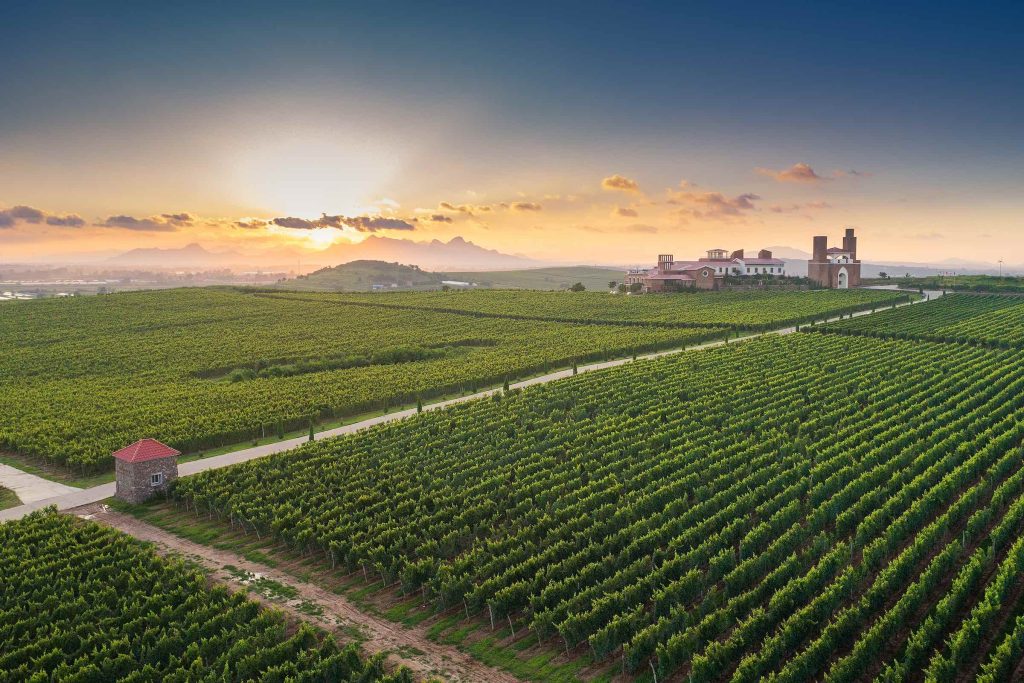
“For European wine lovers, the notion of Chinese-produced wines is still very nascent,” says Lewis Chester DipWSET, co-founder and CEO of Liquid Icons and the go-to wine expert at Robb Report, who also contributes to Robb Report Hong Kong’s annual Best in Wines & Spirits compendium. “Part of this emanates from the ‘unobtainability’ of the wines, either in stores, merchants, or restaurant lists. Part of this is related to a perception that the wines are not of great quality. Overriding is the fact that the ‘Old World’ wines of Europe are perceived to be the best [and] already available in relative abundance at all levels of price and quality, making it hard for a newcomer to find a place in the market,” he explains. “At the fine wine level, the LVMH project, Ao Yun, has certainly made some interest and noise in the media. But the wines are still relatively young, and the feeling is that it will take a decade or more before they can be considered at or near the same level of other wines made in the LVMH portfolio.”
Change is surely afoot, as 500 international wine enthusiasts, winemakers, and industry experts populated the affair at Wynn Macau and Wynn Palace, lured to libations from a region that does not get enough love nor press. As a strong foothold to showcase the highest-quality wines from China on a global stage, Wynn went on to host the Wynn Signature Chinese Wine Month in May following the awards, further celebrating the greatness of Chinese wines.
“We have created the awards ceremony to serve as a global platform to allow wine experts from various regions in China to collaborate, exchange knowledge, and promote Chinese wines on a larger international stage, enhancing the reputation of Chinese premium wineries in the world,” says Linda Chen, president, vice-chairman of the board, and executive director of Wynn Macau.
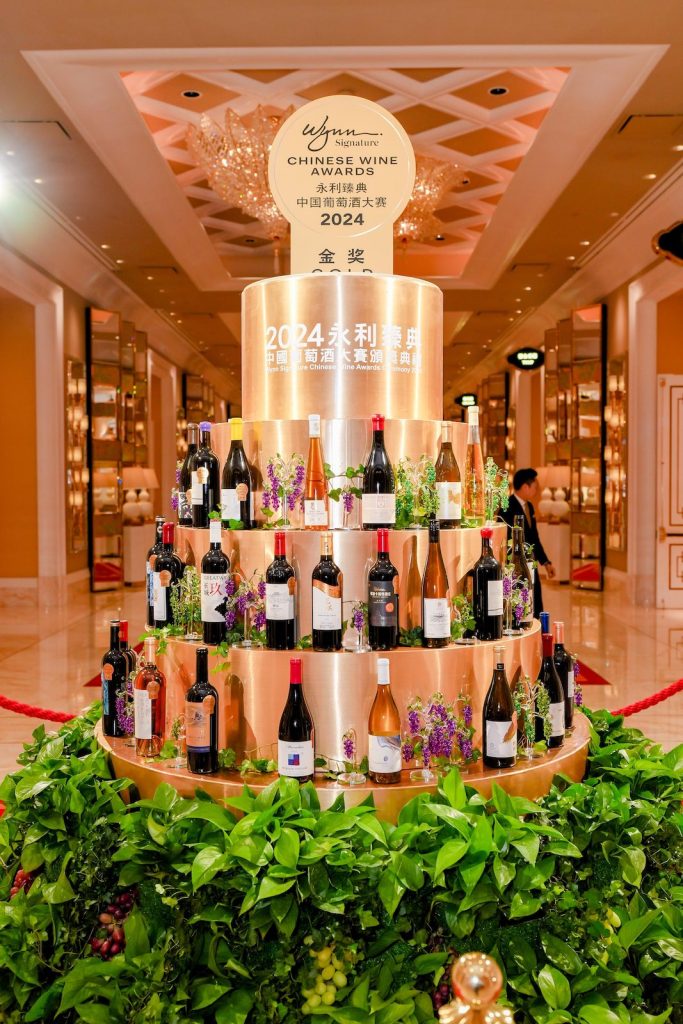
According to the grapevine, we have merely tapped the top of the barrel of what lies ahead. When asked what wines from China he would recommend, Eddie McDougall, chair of judges of the Wynn Signature Chinese Wine Awards, took pause before answering. “It is a really difficult question to answer as there have been so many positive developments in the last three to five years. Although, I would have to say that the Chardonnays that have emerged from Shandong in the last 18 months have been very impressive; the complexity, energy, and shape of these wines are just reaching new heights for Chinese whites.”
If it seems too premature to pop Champagne in honour of the new age of fine Chinese wine, the industry is currently bubbling over with excitement. McDougall says that “the renaissance is here, it’s happening, and the acceptance of the wines from China by top industry professionals and the Chinese consumers gives a lot of confidence. It’s a very exciting time to be involved in the Chinese winemaking fraternity.”
However, the opinion of Gus Zhu MW, vice-chair of judges, differs a smidge. “‘Renaissance’ is a strong word—there are lots of changes and improvement, but we can’t say ‘renaissance.’ For the everyday consumer, the focus should be on discovering wines that offer accessible pricing and exceptional quality. In this regard, the Wynn Signature Chinese Wine Awards act as a distinguished platform that sheds light on Chinese wines on an international stage, garnering recognition, and acclaim from esteemed industry experts,” he continues. “With the notable distinction of the Best Value Wine selection, I look forward to seeing consumers embracing and celebrating these remarkable beverages.”
“I have been really enjoying some of the white wines that have been emerging. For instance, some of the Chardonnays from Shandong. I have also been enjoying some Shiraz from Shangri-La very much,” says Fongyee Walker MW, vice-chair of judges. “I still think that there is a lot of great wine to be discovered in China. And the more I go out, the more I feel that China has a lot to offer. For instance, recently, I found a beautiful Viognier in Ningxia.”
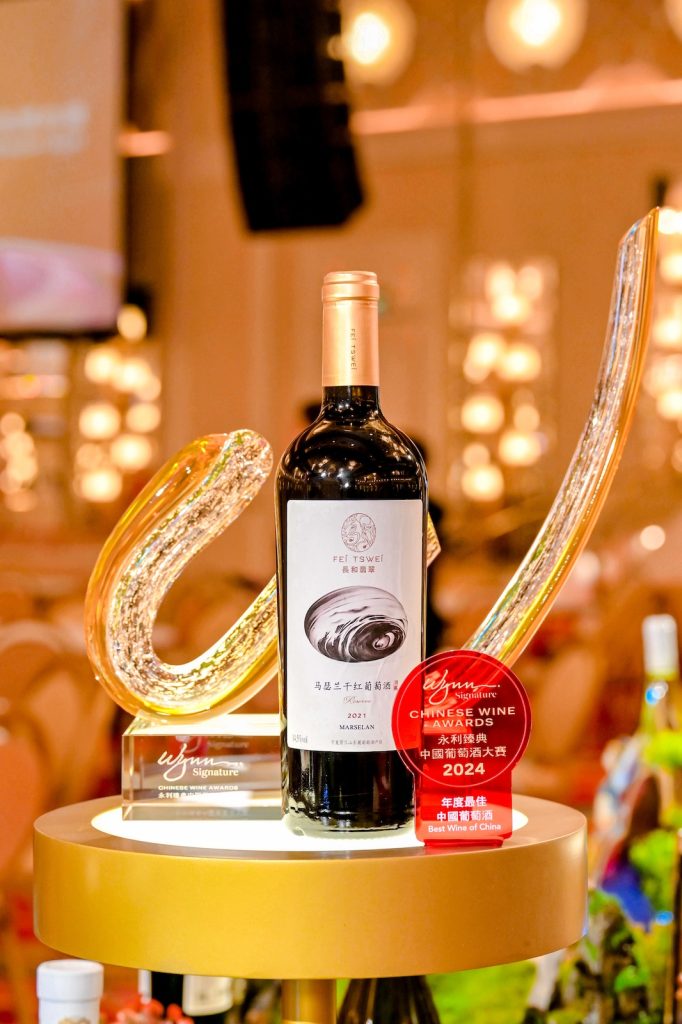
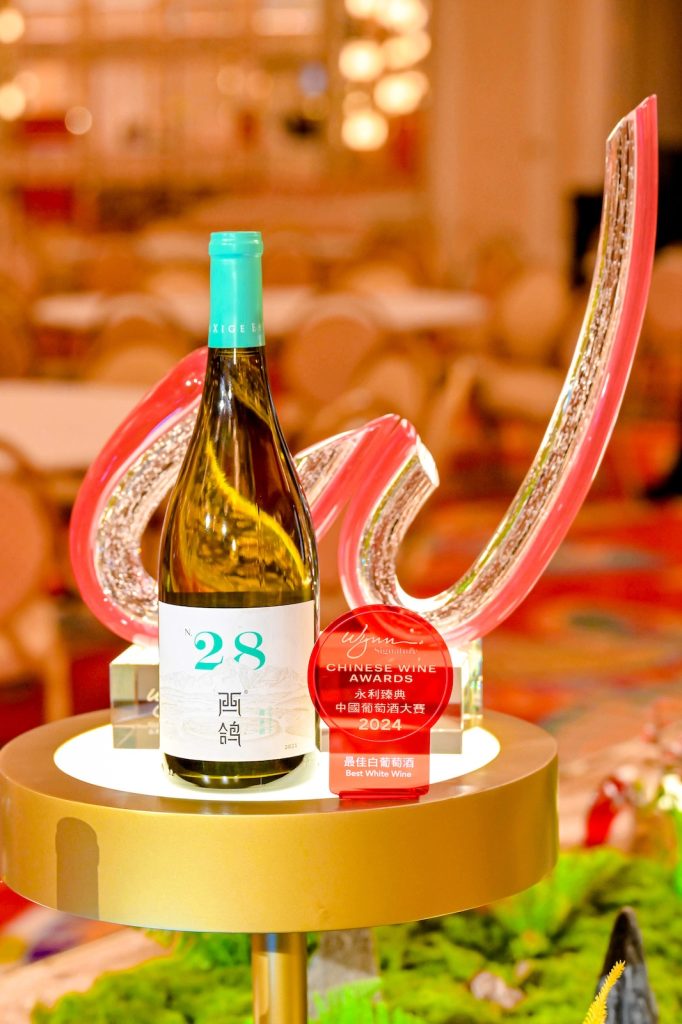
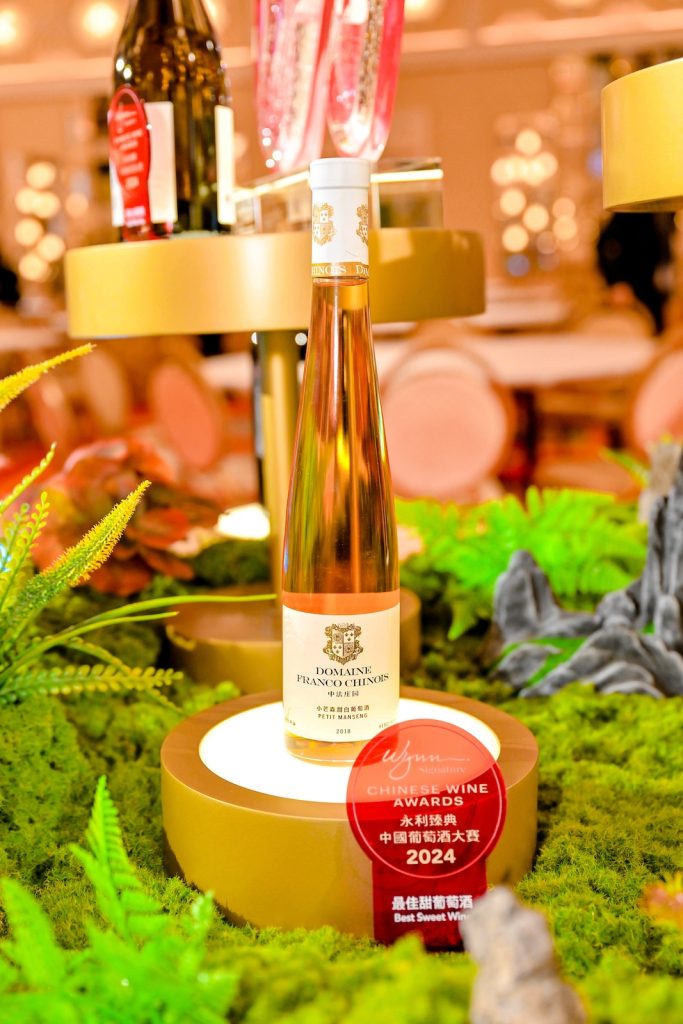
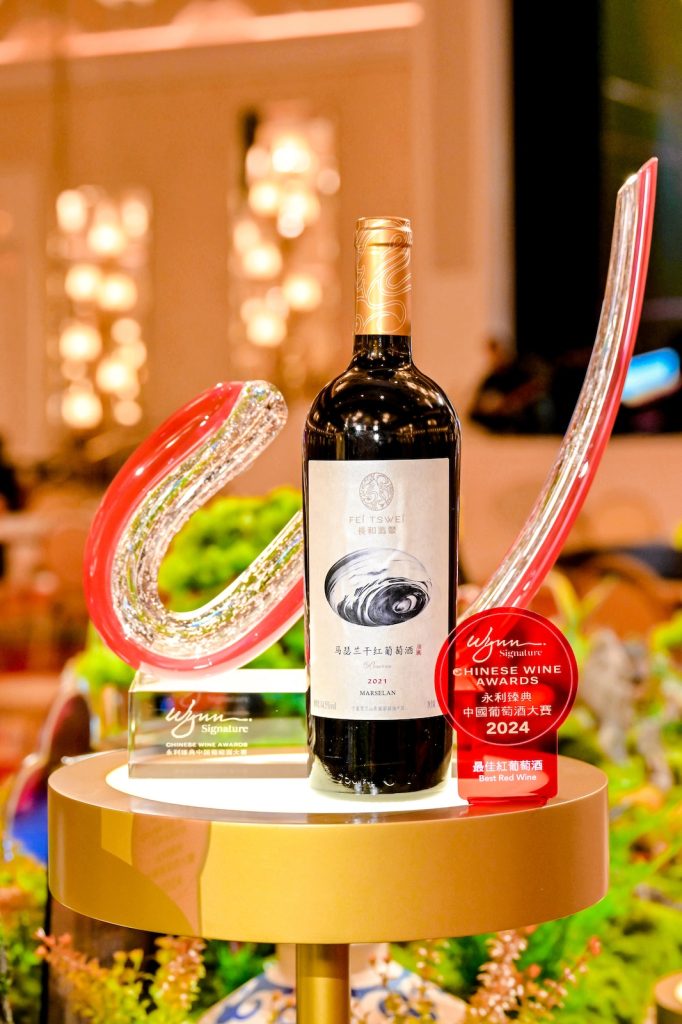
Walker’s credentials are too copious to list, but she has been featured in the award-winning documentary Red Obsession and starred in Wok ‘n Wine, pairing wines with Chinese cuisines. She illuminates, “China’s traditional drink was wine made from rice wine—the baijiu, the high-proof spirits, became more famous [in the second half of the 20th century] and that was promoted very much more as the Chinese spirit of choice. However, I still believe that the most traditional drink is rice wine in China and not high-proof spirits because that’s what the poets and all the writers would drink in the Tang, Song, Ming, Qing, and Han dynasties.”
Agreeing with us that there isn’t enough milage on media coverage of notable Chinese wines, Walker concurs, “Most people just don’t even think that China has wine and that’s the most common misconception. I think they’re worried about the source of the wine and the production process. Additionally, there’s a misconception about the quality level being lower than it is.”
And when it comes to recommendations, Walker strays away from broad brushstrokes. “You have to recommend wine to people’s tastes,” she says matter-of-factly. “If they like white wine, I recommend going for a nice fresh Chardonnay from, let’s say, Tiansai in Xinjiang, like Skyline of Gobi Reserve. If they like sweet wine, then try an ice wine from Shangri-La, or an ice wine from Liaoning. If you like big reds, then go for a Shiraz Marselan from Xinjiang—or you could go for a Cabernet from Ningxia. If you like pink, that’s a bit hard. But if you’d like something interesting and funky, then go for an Aglianico from Grace Vineyards in Shangxi. If you’d like something ‘Pinot-y’ then the best Pinot in my opinion are being produced right outside of Beijing in Huailai, Hebei at the Canaan Winery under the Chapter and Verse brand.”
A favourite quote from an oenophile comes to mind, “A bottle of wine begs to be shared; I have never met a miserly wine lover.” Walker concurs and concludes, “Go out there and drink, and drink, and drink. Try what you like, do what you like. Don’t listen to too much—just explore your own tastes and your own abilities, because that’s what’s most important. I hope that you keep an open mind, an open palate, and an open enjoyment—that’s the key to life!”
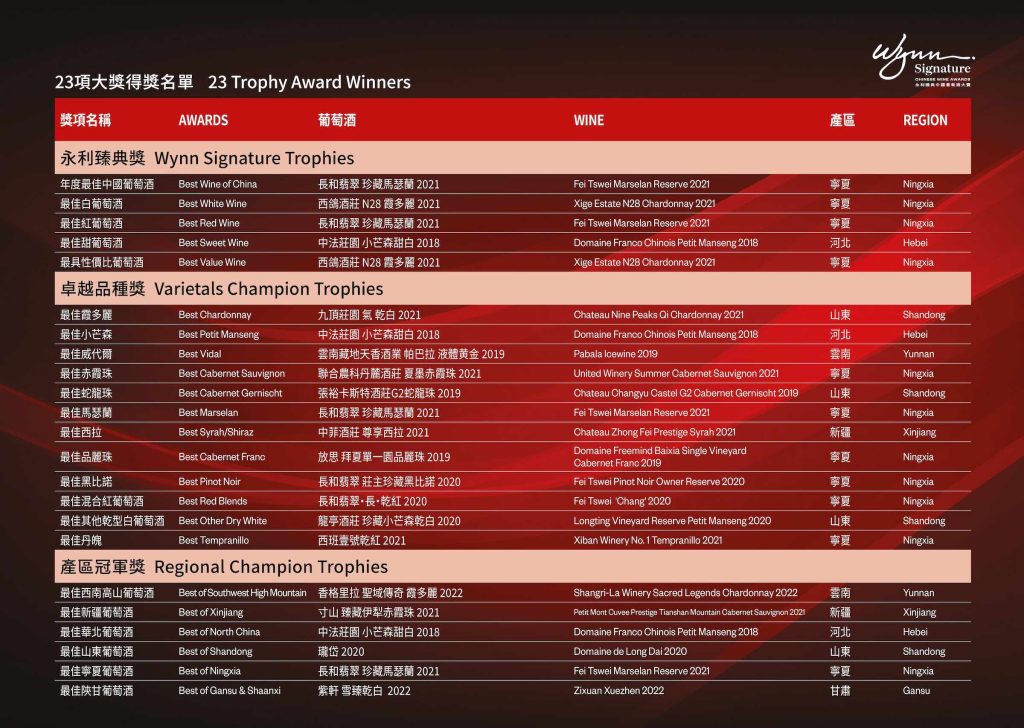
All images courtesy of Wynn Macau.






